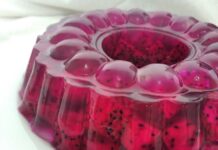By Tracy Turner | Ohio State Chow Line
“I prefer the texture of soft-boiled eggs versus hard-boiled eggs. Is it OK to use soft-boiled eggs for dyeing Easter eggs?”
Well, that really depends on whether you plan to eat the Easter eggs or just use them for decoration.
Eggs are an important source of protein and are delicious to eat. However, they must be handled safely to prevent the chance of contracting a foodborne illness.
While it’s understandable that some people prefer the taste of soft-boiled eggs versus hard-boiled eggs, from a food safety standpoint, it is safer to use hard-boiled eggs for dyeing Easter eggs that you plan to eat. In fact, you should cook the eggs until both the yolk and the white are firm, not runny.
Why are hard-boiled eggs safer?
This is because eggs can contain salmonella, which is an organism that causes foodborne illness, according to the U.S. Department of Agriculture’s Food Safety and Inspection Service. Salmonella can be found on both the outside and inside of eggs, and it can cause nausea, vomiting, diarrhea, cramps, and fever, which can last for a couple of days to a week, the USDA says.
The symptoms can be worse for people with weakened immune systems, young children, and older adults, and they can result in severe illness, including death, said Kate Shumaker, an Ohio State University Extension educator and registered dietitian. OSU Extension is the outreach arm of The Ohio State University College of Food, Agricultural, and Environmental Sciences (CFAES).
To help lessen your chances of developing foodborne illness, it’s best to cook eggs before eating them, as cooking reduces the number of bacteria present in an egg. However, a lightly or softly cooked egg with a runny egg white or yolk poses a greater risk than a thoroughly or hard-cooked egg, the USDA says.
Lightly cooked egg whites and yolks have both caused outbreaks of salmonella infections, according to the Centers for Disease Control and Prevention. That’s because partially cooking an egg can result in some harmful bacteria surviving the cooking process, which can cause illness.
Likewise, the U.S. Food and Drug Administration estimates that 79,000 cases of foodborne illnesses and 30 deaths each year are caused by eating eggs contaminated with salmonella.
While the chances of foodborne illnesses are small, you still need to practice safe food handling when dealing with raw eggs in preparation for dyeing and eating Easter eggs,Shumaker said.
Cooking safe-to-eat Easter eggs
If you are making Easter eggs that will be eaten, it is important that you make sure the eggs are thoroughly cooked. This can be done by placing fresh eggs with intact shells — never use eggs with cracked shells — in a saucepan and covering them with at least 1 inch of water.
Cook the eggs until the yolks and whites are firm: Cooking times can vary based on the sizes of the eggs. Then, run cold water over the eggs and store them in the refrigerator until you are ready to decorate them.
More safety tips
Here are some other safety tips from the USDA to keep in mind:
- Be sure to use only food-grade dye if you plan to eat the eggs you decorate.
- The USDA recommends making two sets of eggs: one for decorating and hiding, and another for eating. You could also use plastic eggs for hiding.
- If you plan to eat the eggs, after hard-boiling them, dye them and return them to the refrigerator within two hours.
- If you plan to use the eggs for decorations and they will be out of the refrigerator for more than two hours, it’s best not to eat them.
Chow Line is a service of the College of Food, Agricultural, and Environmental Sciences and its outreach and research arms, OSU Extension and the Ohio Agricultural Research and Development Center. Send questions to Chow Line, c/o Tracy Turner, 364 W. Lane Ave., Suite B120, Columbus, OH 43201, or turner.490@osu.edu.
















